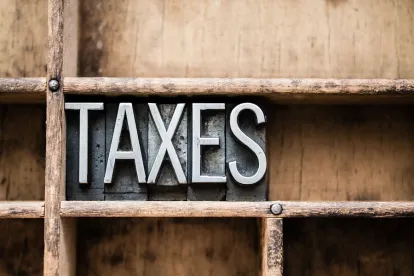After the highly publicized administrative lease transaction and amusement tax expansions in Chicago last year, more cities around the country are taking steps to impose transaction taxes on the sale or rental of digital content. Unlike tax expansion efforts at the state level (such as the law recently passed in Pennsylvania), which have almost all been tackled legislatively, the local governments are addressing the issue without clear legislative authority by issuing administrative guidance and taking aggressive positions on audit. As the local tax threat facing digital providers turns from an isolated incident to a nationwide trend, we wanted to highlight some of the more significant local tax developments currently on our radar.
California
This summer, a coalition of approximately 40 California cities hired a law firm to draft an administrative ruling that would expand their Utility Users Tax (UUT) on video programming services (i.e., basic and premium cable services, audio services, video games, pay-per-view services and on-demand programming) provided by “video service suppliers” to include subscription video services provided over the top (OTT) by companies that are not video service suppliers.
By way of background, the UUT is an excise tax imposed by California municipalities on the consumption of utility services, including cable television. Like a sales tax, the UUT is collected from the consumer and remitted to the local jurisdiction by the service provider. However, unlike the sales tax, which is remitted to the state (and subsequently distributed to localities), the UUT is not imposed at the state level and therefore, businesses required to collect must remit tax on a city-by-city basis. There are about 150 local jurisdictions with UUT ordinances, but only about half of them include the video programming services imposition language that the draft ruling seeks to interpret. Of those, roughly half of the local jurisdictions are part of the coalition that requested the draft ruling expanding the imposition to OTT content.
If adopted, this ruling would expand the UUT to require both cable (video service suppliers) and non-cable service providers to begin collecting and remitting UUT for their subscription and one-time service fees charged for “video services” to customers residing in the California locality. The draft ruling even goes so far as to provide a list of popular companies and products (see Attachment A of the draft ruling) that will likely be captured by the UUT expansion. Strangely, the ruling does not have a clear effective date, but instead simply provides that “this Ruling shall be implemented by no later than January 1, 2017.” (emphasis added) While only two cities have adopted the ruling so far (Benicia and Indio), the unclear effective date is included in both. We have sought guidance from each city on whether the rulings took effect upon adoption in late August or will take effect on some later date, prior to January 1, 2017. As of the drafting of this blog, we have not heard back from either jurisdiction.
Because the original imposition of tax on video programming services appears intended to govern only video service suppliers providing one or more channels of video programming (and not streaming or OTT video content), it does not appear that California local tax administrators have the authority to expand the UUT as the draft ruling proposes.
Just a few weeks ago, a memo to the Pasadena City Manager was issued that resulted in several members of the City Council questioning and pushing back on this effort. Ultimately the ruling was never adopted. This development, paired with the feedback on compliance concerns raised by OTT representatives throughout the process has resulted in the coalition of cities delaying further adoption and implementation until representatives from the OTT industry are given the chance to offer input. Based on this temporary delay, the implementation of the rulings is expected to be pushed back to March or April 2017, as opposed to January 1, 2017 (as included in the rulings adopted in Benicia and Indio).
Note:
The California UUT video programming services ruling is not the only example of a recent local grab in the digital context.
A number of vendors have indicated that third-party contract auditors working for Colorado cities have begun taking the position on audit that the local sales tax imposition on “tangible personal property” (defined a corporeal personal property) applies to streaming and other OTT content because the transactions take up some space (albeit temporary) on hardware devices sitting in Colorado.
In Alabama, representatives of local government groups are actively participating in a legislative working group to define the scope of the digital tax expansion effort expected during the 2017 session.





 />i
/>i

